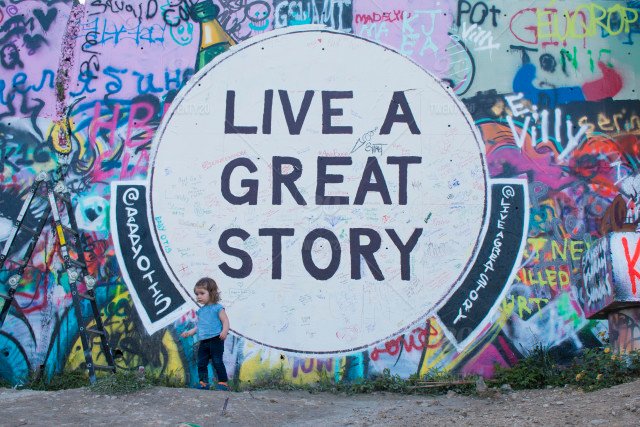DIGITAL STORYTELLING - 1
Once upon a time...
These four words have become the timeless signal that a story is about to begin. When I was much younger, I used to get very excited whenever I opened a book and saw those words or heard my grandmother say the equivalent of it in my language. I'm much older and I still get excited when I'm about to begin a story--whether I'm writing it or someone is telling it.
If you look at it, our lives are a series of overlapping, intersecting and seemingly random stories. The man who runs late for work and misses his bus. The woman who is coming down with the flu wakes up late and misses her bus too. She and the man happen to find themselves at the same junction, waiting for another bus. A conversation starts, love blossoms and viola! A love story is born.
In the past, stories were either told by word of mouth or written down on the walls of caves and in books. The advancement in technology and the birth of social media has opened up many ways through which stories can be told. It also gave birth to digital storytelling.
This is simply the art of telling stories through the use of digital tools such as photographs, videos, sound, music, text and narrative voice. These stories can be used as memory aids, instruction manuals, moral compasses, etc.
In the world of digital media, storytelling is king. No matter what your content is, whether you wish to build a brand, grow your influence, or garner support for a cause, you must tell a story. It doesn't have to begin with, "once upon a time," but it has to be able to catch the attention of your readers or viewers, pull them in and take them on a journey.
To do these, you must fully explore the elements of storytelling. Digital storytelling is made up of various elements which include point of view, dramatic questions, emotional content, the gift of voice, reason, audience, soundtrack, economy, and pacing.
- Point of view:
To narrate a story, you must first choose the perspective from which you want to tell it. In first, second or third person? Let's say you want to tell the love story of the man and woman in the second paragraph who met at the junction. Will you tell the story as the man?
"I woke up late this morning, No matter how quickly I rushed through my morning routine, I still ended up missing the bus.
Would you tell it on behalf of the woman?
"You could feel the onset of a migraine nibbling at your temples. This only happened when you were about to come down with the flu. As you sped through your bath, you knew with a sinking feeling that you were going to be late for work."
Perhaps you would tell the story as a third party who is omnipresent and witnessed everything.
"Kofi closed the gate behind him and turned down the street, his feet making a staccato rhythm on the curb. Three streets away, Asandia walked briskly towards the junction, praying she would not miss the next bus. Both were unaware of what Fate had in store for them. Their minds were occupied with the excuses they would give at their respective offices, for coming in late."
What will be the main point of your story? If I were the one telling it, I would speak of the way life seems to be random but really is not. For what are the chances that a man and a woman who share like interests and will be attracted to each other, would happen to miss their buses on the same day and meet at the same bus stop, stand next to each other and begin a conversation? That would be my point of view.
Tomorrow, we will take a look at these elements: dramatic questions and emotional content.


